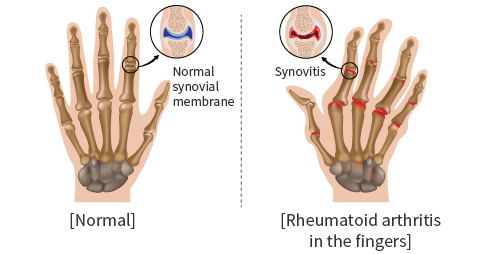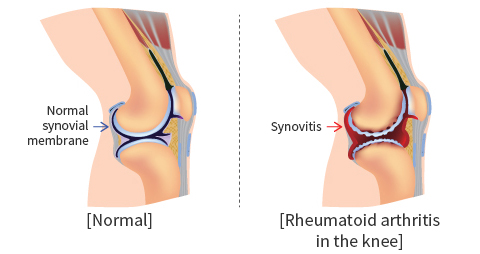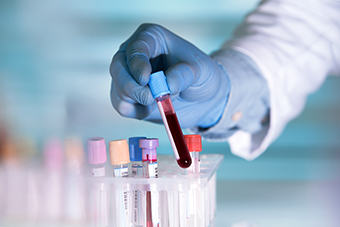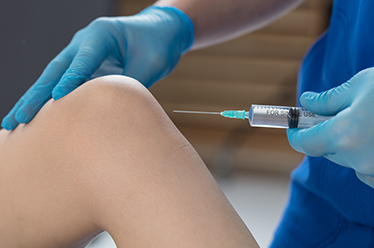Nanoori Hospital has a systematic system from examination to diagnosis, medication, and surgical treatment for rheumatic diseases, and provides total care for rheumatic diseases such as rheumatoid arthritis, ankylosing spondylitis, and Sjögren's syndrome through coordinated collaboration with the Spine Center and Joint Center..
Rheumatic diseases are inflammatory conditions caused by an abnormality in the autoimmune system, which causes an inflammatory response in the synovial membrane that lines the joints and damages the cartilage. Rheumatoid arthritis usually starts in small joints, such as the hands and feet, and progresses to larger joints such as the knees. If left untreated, rheumatoid arthritis can cause inflammation to spread to cartilage and bone, resulting in joint destruction, deformity, and dysfunction.


Because rheumatoid arthritis is caused by an immune system abnormality, there is no specific prevention. Therefore, if you suspect symptoms, it is important to get an accurate diagnosis to manage the disease.

[Blood Test]

[Imaging Test]
Blood Test
Your doctor will make the diagnosis based on your rheumatoid factor, the presence of anti-CCP antibodies, and increase in inflammation level, etc.
Imaging Test
X-ray or MRI are used to determine the extent of joint deformity or cartilage damage caused by rheumatoid arthritis.
Nanoori Hospital strives to slow down the progression of the disease, to control pain, and to restore joint function through medication, injection, and surgical treatment, depending on the severity of the disease and the patient's condition.

[Medication]

[Injection Therapy]

[Surgical Treatment]
/ Medication
Anti-inflammatory drugs, which reduce joint inflammation and pain, and anti-rheumatic drugs, which suppress the progression of rheumatoid arthritis by regulating immunity, are used to alleviate symptoms and slow down the progression of the disease.
/ Injection Therapy
It is a treatment that helps joint function as much as possible by blocking tumor necrosis factor (TNF), a substance that causes inflammation within the joint. It is performed when antirheumatic drugs do not improve.
/ Surgical Treatment
Arthroscopy Arthroscopy removes the inflammation that has proliferated in the synovial membrane surrounding the joint. It can relieve pain, improve joint function, and slow the progression of disease.
Arthroplasty Arthroplasty is performed to realign the joints when the shape of the joints has become severely deformed as rheumatoid arthritis progresses.
Artificial Joint Replacement When arthritis is severe and the joints are completely damaged, a surgery called joint replacement, which involves replacing the damaged joint with an artificial joint, is performed.
